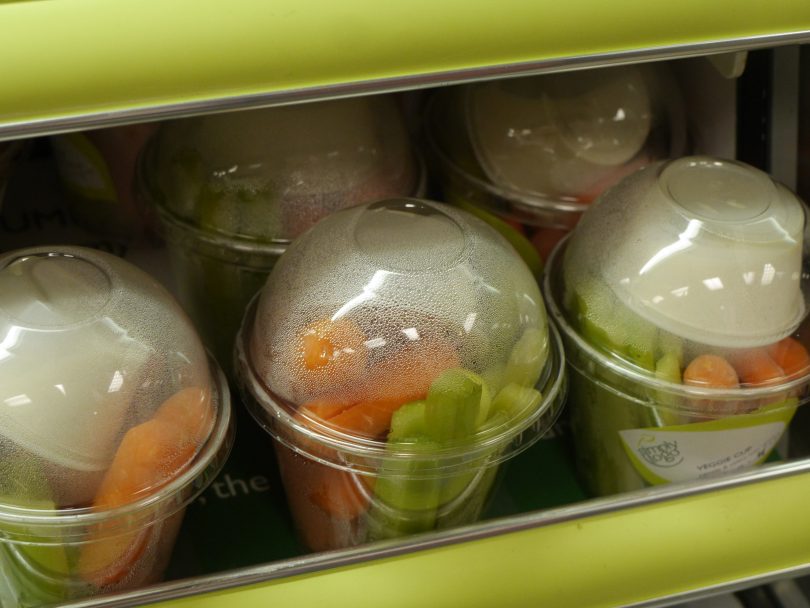Plenty of students complain about the food in Marbeck, but few go to the hospital because of the food served there.
Sophomore Seth Regula said that’s what happened to him Tuesday, Sept. 6. He was suddenly taken to the hospital after accidentally consuming gluten, he said. Regula has Celiac’s disease, and his body is not able to tolerate gluten. Gluten is a protein found in some grains, such as wheat. As a result of his allergy, Regula has to monitor his diet very closely.

Seth Regula, a sophomore student with a gluten allergy.
“[Gluten] is basically in everything,” Regula said. “So, if you slap some breading on a piece of chicken, or add a fancy marinade, chances are, I can’t eat it.”
Regula said that after his most recent accidental exposure, he was hospitalized because of alarming symptoms.
“I had to go to the hospital,” he said. “I started vomiting. Diarrhea. And then my hands cramp up. I have shortness of breath. Sometimes I black out. It can get to be pretty serious.”
Regula said he consumed gluten due to what he believes might have been cross contamination in the Marbeck Commons.
“There is cross-contamination written all over that building,” Regula said of the Marbeck Commons. “I don’t feel safe eating there.”
Regula, who made a full recovery and returned to class the following day, said he is not the only one with concerns.
“There are many people on campus who have this issue,” he said. “It’s not just gluten. It’s gluten, diabetes, and vegan.”
Assistant Dean of Students and Director of University Event Complex and Conferences Mark Bourassa said the university has a designated process for students with specialized diets to make sure their needs are met.
The first step, he said, is for students with any special medical or dietary need to meet with Jacqui Slinger, director of disability services at the university. She uses a series of federal guidelines to determine whether accommodations should be made.
“Once she has documented that information, she and the student usually meet with the chef,” Bourassa said. “Then, they kind of review how dining services is going to meet that particular dietary need.”
Executive Chef Quinmarlo Quince is new to The Commons this year, but said his preference is to sit and talk with students, get to know them and explain the processes his staff use.
Bourassa said they have worked with particular students in the past for whom they do special meals and have even arranged to have meals ready for those students if they call ahead and let them know when they plan to arrive and eat when the main line options won’t work.
“In the past, I could find food at main line, but this year I have had more trouble,” said Ruthann Stuckey, a junior with gluten and dairy intolerances. “Several times, milk won’t be labeled as an ingredient, but I can see the cheese in the dish. And it’s frustrating they took down the nutrition information on the cereal dispensers. I feel like there are fewer choices this year.”
Quince encourages diners to bring those comments directly to him along with feedback on how to fix the problem. He recalls working with a student with a dairy allergy who raised a concern about cheese being too close to other foods.
“So what I did, was … I took the cheese and I put it clear at the end so that it wasn’t near anything and nothing could get cross-contaminated,” he said.
According to Quince, avoiding cross contamination is a priority, and his staff talks about it daily.
“We talk about making sure we have our menus out to make sure that people know what’s in [the food],” he said. “I take it really seriously. … But it’s a constant thing. Training never stops.”







